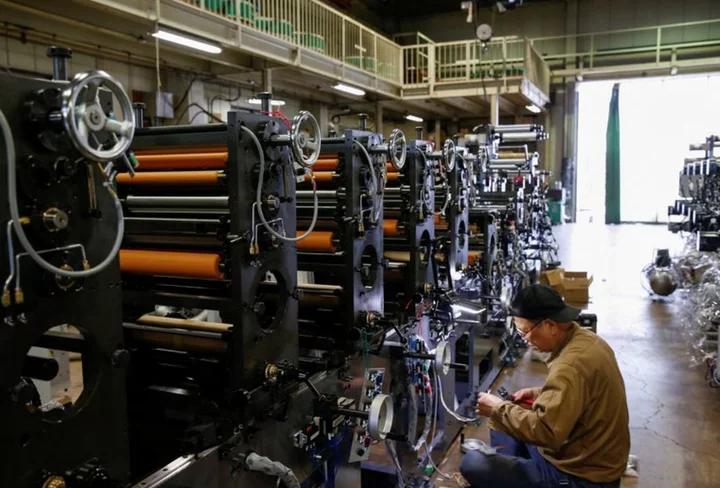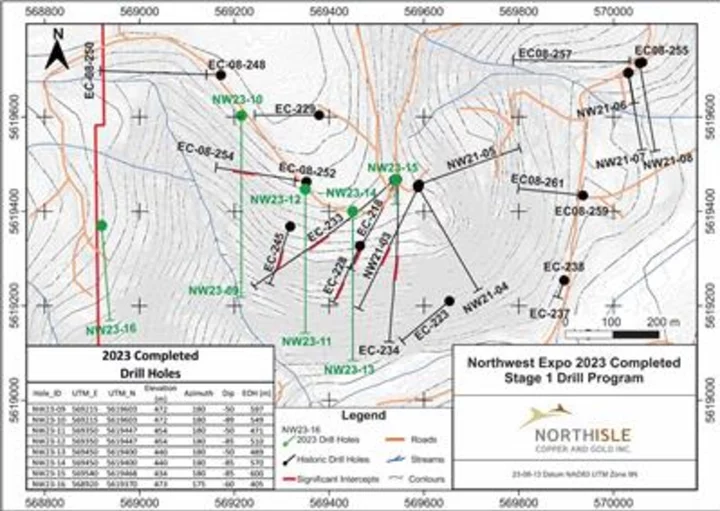TOKYO (Reuters) -Japan's factory output rose much less than expected in September, government data showed on Tuesday, as demand slowed significantly, adding to uncertainty hanging over the export-reliant economy's outlook.
Industrial output rose 0.2% in September from the previous month, data from the Ministry of Economy, Trade and Industry (METI) showed on Tuesday. The reading was worse than a median market forecast for a 2.5% gain and followed 0.7% drop in August.
Production machinery output fell 3.4% in September from the previous month, dragged by sluggish manufacturing of industrial robots and metals. Both domestic and overseas orders for those products were significantly lower, a METI official said.
"Investment appetite has been declining due to the rising interest rates at home and abroad," the official said.
Semiconductor manufacturing equipment output went up 13.2% month on month in September, but the official said output for chips and electronic devices is unlikely to recover any time soon.
However, autos production rose 6.0% after disruptions caused by a typhoon and system failures eased, the METI official said.
Japanese automakers reported strong domestic output for September, with Toyota Motor jumping 12.8% and Honda Motor climbing 24.2% year on year on Monday.
Manufacturers surveyed by the industry ministry expect seasonally adjusted output to rise 3.9% in October and fall 2.8% in November, sticking to its assessment on industrial output of "seesawing."
"Demand for goods is expected to remain sluggish both domestically and overseas, and production is not in an environment for a major recovery," said Kota Suzuki, economist at Daiwa Securities.
Separate data also showed Japanese retail sales rose 5.8% in September from a year earlier, marking a 19th straight month of gains and roughly in line with the median market forecast for a 5.9% increase.
Compared with the previous month, retail sales dipped 0.1% in September following 0.2% growth in August, the data showed.
(Reporting by Satoshi Sugiyama; Editing by Jacqueline Wong and Sam Holmes)









